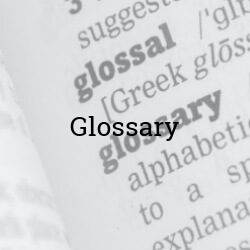De-Coding Senior Care Content Related Terms
Just like the senior living industry with it’s penchant for acronyms (DON, ADL, IADL…), the lingo in the digital world can be confusing. It’s why we put together this glossary of terms that relate to content marketing, SEO and all things digital.
We hope you will share it. Tweet it. Or go all old-school and print out a few copies to share with colleagues!
Algorithm: Google is always working to bring searchers the best and most relevant content. The formula they use is called an algorithm. It is what helps the search engines interpret what you type in to the search bar so they can return web pages to you that contain the answers you are looking for. You’ve probably heard the updates referred to by their critter names like Panda, Penguin, Hummingbird and even… Pigeon.
Alt Text: This term is used to describe an image online. Providing a text description helps the search engines “read” the photo so they know what it is about.
Crawlers: The bots, robots, and spiders that methodically crawl the internet indexing web pages.
Duplicate Content: Using the same or very similar content on multiple sites or pages. Google frowns on this practice and may rank your site lower. Keep that in mind if you have multiple locations you are creating content for.
GYM: Used to refer to the three largest search engines: Google, Yahoo, and Microsoft Bing.
HTML: Stands for Hypertext Markup Language. It is the behind the scenes code used to create the structure of a webpage.
Indexed Pages: This is the total number of pages on a site that have been crawled and catalogued by Google’s robots.
Internal Link: Hyperlinks that connect one page on a website to another on the same website.
Long-tail Keywords: This phrase refers to the “long tail” of the keyword search graphic curve. It returns very specific results. In our industry, it occurs when families use longer search phrases (usually several words) to find solutions.
Pay-per-click: Also known as PPC. Online advertising whereby advertisers pay only when a user clicks on their ad and follows it through to the company’s website.
Query: The keyphrase or keywords a searcher enters in to the online search box.
Search Engine Results Page (SERP): These are the list of results the search engine returns after a search query is entered. Most searchers give priority to the results on the first page, especially few results on the first page.
SEO: Search engine optimization is the process of trying to gain higher ranking in the SERP pages through unpaid tactics. (Great content like ours is one!)
SEM: Stands for search engine marketing. This is when you buy traffic through paid advertising sources like pay-per-click ads or directories.
Title Tag: A short, compelling description of the content on a web page. Strong factor of the search engine algorithms.
Traffic: Refers to the number of visitors to a website and the amount of data sent and received on visits.
URL: Stands for universal resource locator. Simply put, it is a website’s address.
Did we forget something?
Let us know if we’ve missed one you’d like to see included and we’ll add it!
Related Resources:
Decoding Online Marketing Jargon
Senior Living SEO & Content Creation
